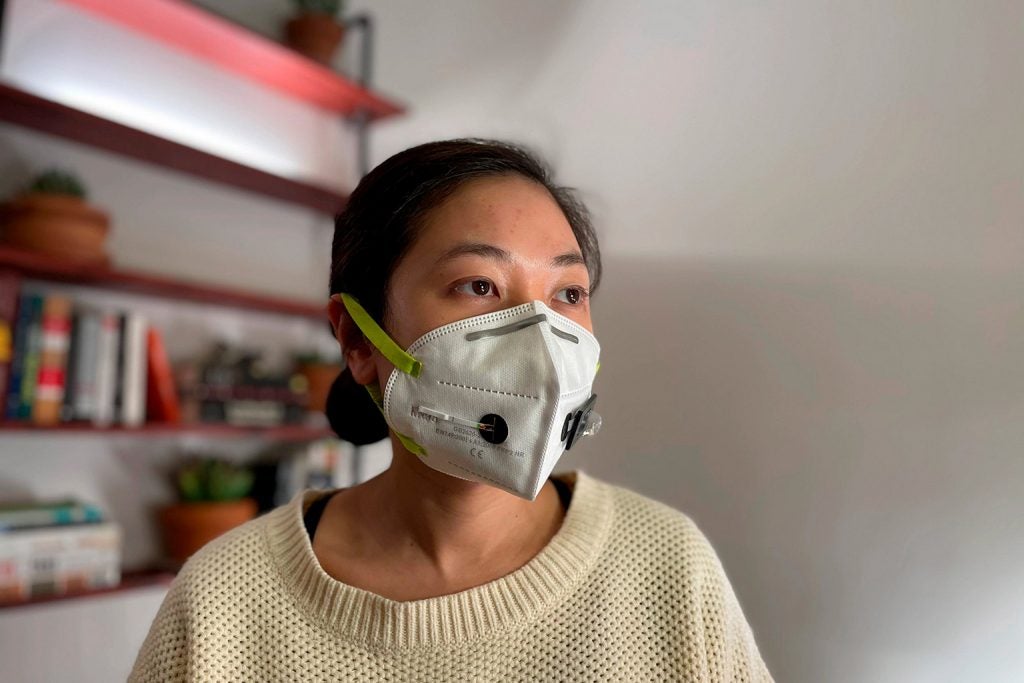MIT and Harvard engineers develop face mask that detects COVID-19
Date: 28.6.2021
Researchers from MIT and Harvard have demonstrated a cutting-edge biosensor technology by developing a face mask that can detect SARS-CoV-2 in a wearer’s breath within just 90 minutes.
 The sensor technology can be programmed to detect any kind of virus or toxin and is small enough to be integrated into clothing fabrics.
The sensor technology can be programmed to detect any kind of virus or toxin and is small enough to be integrated into clothing fabrics.
The biosensor has been in development for several years and is based on a new technology dubbed wFDCF (wearable freeze-dried cell-free). Unlike previously developed biosensors that require the incorporation of living cells, this system extracts and freeze dries the cellular machinery needed to detect organic molecules.
“Other groups have created wearables that can sense biomolecules, but those techniques have all required putting living cells into the wearable itself, as if the user were wearing a tiny aquarium,” explains Peter Nguyen, co-first author on the new study. “If that aquarium ever broke, then the engineered bugs could leak out onto the wearer, and nobody likes that idea.”
The wFDCF technology has previously been used to create experimental diagnostic tools for the Ebola and Zika viruses. Around a year ago, as the COVID-19 pandemic took hold around the world, the researchers quickly pivoted to try and turn the experimental technology into a useful product to help combat it.
“We wanted to contribute to the global effort to fight the virus, and we came up with the idea of integrating wFDCF into face masks to detect SARS-CoV-2,” notes co-first author Luis Soenksen. “The entire project was done under quarantine or strict social distancing starting in May 2020.”























